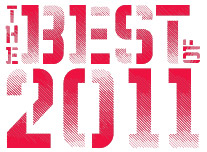
 Nightbringer
NightbringerHierophany of the Open Grave
Season of Mist
I continue to be mystified as to why more people don’t regard Colorado’s Nightbringer as being one of the elite black metal bands of the modern millennium. Their back catalog is exemplary, and their newest opus, Hierophany of the Open Grave, ups the ante for their American brethren and the band itself. Hierophany is easily one of the darkest records I’ve ever heard, layered in tremolo-picked guitars that alternately twist, whine, gurgle and churn, as well as some of the creepiest riffs this side of 1349’s Hellfire. Yes, the guitars are the MVPs of this little slab of nastiness, lending a warped overtone to nearly every track throughout. That’s not to say that the vocal work is lackluster, as singer Naas Alcameth summuns demons from the darkest dimension. And while there are more than a few blastbeat-driven passages, for the most part Nightbringer keeps the proceedings at a mid-paced rhythmic pulse, creating a soul-draining sense of doom.

 Inquisition
InquisitionOminous Doctrines of the Perpetual Mystical Macrocosm
No Colours
Colombian black metal horde Inquisition is back, and holy shit do they do it with fists of fury! Some 20 years into their storied career, Inquisition may have just delivered their most solid album in Ominous Doctrines of the Perpetual Mystical Macrocosm. Ominous Doctrines comes galloping out of the gate with fist-pumping blastbeats, double-bass and slashing guitar chords, which are soon joined by Dagon’s unmistakable vocals. While for the most part Inquisition keeps the proceedings fast-paced, they aren’t afraid to slow it down for select doomy riffs or a gnarly breakdown. With Ominous Doctrines, Inquisition once again makes their case for being considered one of the best in the game.
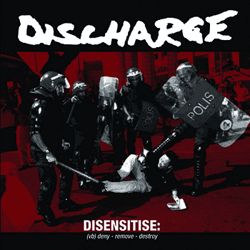
 Discharge
DischargeDisensitise/War is Hell
Candlelight
Easily one of my favorite extreme music reissues of the year, this deluxe reissue from Candlelight features two of my favorite albums by British hardcore punk band Discharge. For you young whipper snappers out there, Discharge formed in the late ’70s, during the first wave of UK punk, but set themselves apart from their brethren by fusing the punk attitude and simple chording with tones of heavy metal and lyrics on anarchism and anti-violence barked in a sing-song fashion. In fact, Discharge is so influential on punk, hardcore and metal that an entire sub-genre has been coined to describe the band’s grinding, chugging guitar style and galloping drumbeat (D-beat). Anyway, these are two fast and furious albums on one disc, featuring undeniable classics such as “State Violence State Control,” “Never Again” and “The More I See.” It’s a necessary purchase for those who have a thirst for killer hardcore with a metal edge.
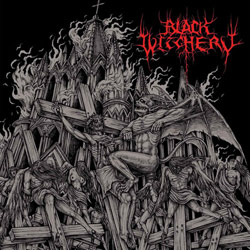
 Black Witchery
Black WitcheryInferno of Sacred Destruction
Osmose Productions
Black Witchery’s newest album, Inferno of Sacred Destruction, comes roaring out of the gate from the minute-go with furious blastbeating, atonal grinding guitars and the guttural, low bark-growl of bassist and vocalist Impurath. Nothing fancy here, just nasty, distorted, thrashy black metal and general noisiness. If you want refined technique and pinpoint execution, you’d best look elsewhere as the Florida band doesn’t give a shit about being professional or polished. Black Witchery are all about reckless abandon and making a racket in the name of all things evil and are damn good at doing these things. And while the majority of Inferno is fast and gnarly, they also make some time for some horror-soundtrack instrumental forays that fit right in with the overall vibe. My guess is if you ask Satan himself, he probably approves.
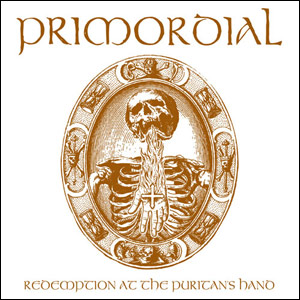
 Primordial
PrimordialRedemption at the Puritan’s Hand
Metal Blade
Having shed nearly all traces of traditional black metal from their sound, Ireland’s Primordial is still a fierce purveyor of the pagan folk-metal sub-genre, and baring elements of traditional heavy metal, Redemption at the Puritan’s Hand, feels a lot more straightforward than some of the band’s previous efforts. However, even when incorporating such elements, they do it in a way that is uniquely Primordial, eschewing flashy guitar heroics for melancholic tones that serve as the perfect vehicle for AA Nemtheauga’s plaintive singing. Clocking in at more than 60 minutes total, Redemption is a seemingly daunting listen, but when the light bulb finally does go on, you realize what a great album Primordial has unleashed upon an unwitting world.

 Altar of Plagues
Altar of PlaguesMammal
Candlelight
Ireland isn’t a country associated with creating experimental black metal. However, Altar of Plagues continues to thumb its collective nose at such prevailing thought with its second LP, Mammal. The production is raw enough to give the music an air of atmosphere and allows instruments to sound like they’re either being played from across the ocean or within inches of your nose. The four epic-length songs journey along paths of introspection, mood and ambiance, utilizing everything from chanting, female vocals, acoustic guitars, winds and other sounds of nature in between the post–black metal melodies. Mammal is definitely one of the most unique and hard to digest metal albums released this year, as it alternately interpolates and defies the limitations of the genre. It may take a few spins to get into, but it’s not intended to be a record for headbanging but rather a one of a kind work of art that heightens awareness of both ears and mind with a metallic edge.
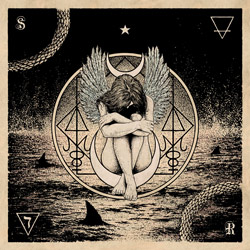
 Subrosa
SubrosaNo Help for the Mighty Ones
Profound Lore
Subrosa is a boys and girls quintet hailing from Salt Lake City, but there’s absolutely nothing Mormon, white or nice about the band’s second full-length release, No Help for the Mighty Ones. No, it’s a solid 60 minutes of plodding drums, super fuzzed-out bass, down-tuned guitars, drone, reverb and an overarching sense of solemnity all around. But perhaps the stand-out elements of this disc are the plaintively mournful vocals of lead singer Kim Pack, Rebecca Vernon and Sarah Pendleton, the latter of which is responsible for the sour, weeping violin melodies that counterpoint the more traditional instruments and add a chamber ensemble quality to Subrosa’s clever take on doom and gloom.

 Blut Aus Nord
Blut Aus Nord777 Sect(s)
Season of Mist
France’s Blut Aus Nord has done it again with 777 Sect(s). This album is an hour of sickly bent riffs and a mix of industrialized drum machine and jackhammer live drumming, ominous keyboards, indiscernibly buried vocals, background vocal chants, and an overall pall of grim bleakness. The dominance of the drum work, in particular, lends the record a mechanized and soulless feel, while on the other hand, there is plenty of complex songwriting and progressive playing in alien time signatures to keep things mesmerizing and intriguing.

 Electric Wizard
Electric WizardBlack Masses
Rise Above/Metal Blade
Considered by many fans to be the quintessential stoner metal act, Dorset, England’s Electric Wizard has been pushing distorted guitar sludge and drug references into listeners’ ears since the mid-90s. Black Masses, their seventh full-length release, picks up sonically where 2007’s Witchcult Today left off, continuing a transition from a sludgy sound into a more traditional cadence, a la early Black Sabbath, by recording entirely on vintage analog equipment. And this time around, Electric Wizard is more song-oriented than ever, with repetitive catchy hooks. Lyrically, Electric Wizard is sticking to their guns, with songs based on the tales of HP Lovecraft, horror films, ’60s Satanism and drug-fueled mysticism. While there are some people who think the band’s Dopethrone is an untouchable masterpiece and any variation on that template ruins the ethos of the mighty Wizard, I disagree. The band has evolved to keep the music fresh and interesting—not just for listeners, but for themselves as well. This is what bandleader Jus Oborn has done ever since the original line-up of the band disbanded roughly 10 years ago, and Electric Wizard continues to masterfully reinvent themselves ever so slightly with each release.

 Extreme Noise Terror
Extreme Noise TerrorA Holocaust in Your Head
Candlelight
Yet another wonderful reissue by the good folks at Candlelight Records, A Holocaust in Your Head is an undeniable classic by British grindpunk legends Extreme Noise Terror. One of the first hardcore acts to feature two vocalists (Dean Jones and the recently deceased Phil Vane) and also one of the only bands to play even faster than like-minded countrymen Discharge and Chaos UK, they were tagged as part of the grindcore movement in late-80s England, along with bands such as Napalm Death and the Electro Hippies. Anyway, this is 35 killer minutes of aggression, grinding guitar chords and the alternating high and low barking that ENT arguably made famous. If you are at all a fan of hardcore punk, crust or grindcore you owe it to yourself to have A Holocaust in Your Head in your musical library.
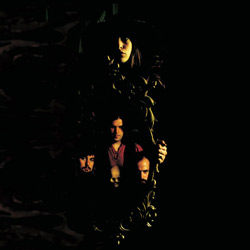
 Blood Ceremony
Blood CeremonyLiving with the Ancients
Rise Above/Metal Blade
Blood Ceremony is part of the modern stream of occult rock and plays in a bluesy, heavily distorted ’60s-style. The Toronto band is fronted by Alia O’Brien, who not only provides witchy vocals for the band, but also plays organ and the flute on several tracks. Think In Rock-era Deep Purple meets Black Sabbath meets Jethro Tull as a reference point, which is definitely not a bad thing. There are flute-led melodic passages, and the juxtaposition with the lumbering bottom-heavy grooves works very well. The songwriting is top-notch and there are memorable hooks and choruses throughout. In the end, Living with the Ancients is a most excellent slab of heavy metal for the retro lover in you.
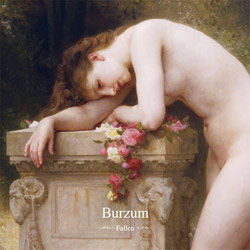
 Burzum
BurzumFallen
Candlelight
Only a short year after the release of Burzum’s comeback album, Belus, Varg Vikernes returned with Fallen. Aesthetically, the record is comparable to its predecessor, but Fallen is a complete musical thought in terms of sound and concept, as opposed to Belus, which while enjoyable, lacked cohesiveness on a song-for-song basis. Each of the individual songs are enhanced when taken as a whole. Varg continues his recent trend of whispery, throaty vocals and throws in some wordless voice melodies, clean singing and spoken-word variations atop tremolo-picked minor chords and unembellished mid-paced drumming. Fallen is an understated, complex hypnotic affair that packs plenty of hooks to reel a listener in on repeated listens.
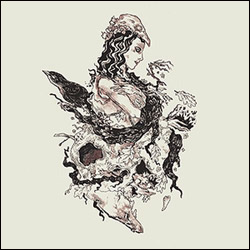
 Deafhaven
DeafhavenRoads to Judah
Deathwish Inc.
I saw Deafheaven open for Russian Circles two months ago, and these guys blew me away. Bombastic, heavy and roaring, Roads to Judah also juxtaposes poignant and beautiful guitar melodies in between its massive walls of dark, tremolo-picked guitars, fitful drumming and the blackened growls of George Clarke, who in the live setting, looked like an enraged Ian Curtis howling at the moon. Epic-length songs and applause-worthy songwriting and arrangements throughout make this disc a serious win. At under 40 minutes, it doesn’t overstay its welcome. In fact, by the time the fourth and final song concludes, you’re likely to start Roads to Judah all over again to continue following the monstrous passageways laid out.
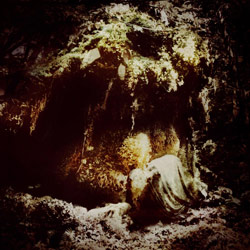
 Wolves in the Throne Room
Wolves in the Throne RoomCelestial Lineage
Southern Lord
Brothers Aaron and Nathan Weaver continue to open up the playbook with their so-called “environmental” black metal project Wolves in the Throne Room and its newest opus, Celestial Lineage. The album opens with airy keys and chimes that lead into the angelic vocals of siren Jessika Kenney. As the vocals subside, a distorted guitar melody enters and the proceedings darken before the entire band booms through your speakers with a mighty roar. The song sets the trend for the rest of the record, which feels like a soundtrack for a trek through a rainy forest, underpinned by keys and electronic atmospherics as well the occasional environmental sound effect, acoustic guitar, sorrowful female vox and wordless chants in the distance. Although only clocking in at 48 minutes in length, Celestial Lineage is a grand album that exists beyond the mere realms of a metal record, and much like its authors, ultimately in a cosmos of its own.

 Liturgy
LiturgyAesthetica
Thrill Jockey
Fuck the haters, Liturgy scores big with Aesthetica, one of my favorite black metal albums of the year. The album begins with some discordant, arrhythmic clanging that is soon kicked out of the way with an onslaught of blindingly fast tremolo-picking and blistering blastbeats. This fury epitomizes the aesthetics of the rest of the album, which for the most part is lightning fast and disorienting. The mechanics of the band are extraordinarily tight, but if you think that means Aesthetica is sterile, you couldn’t be further from the truth. Liturgy is influenced as much by post-hardcore and math rock as Marduk and Mayhem, and there are moments on Aesthetica where they lock into a Fugazi-like groove. Aesthethica is a brazen album brimming with hooks and memorable breakdowns that will become more immersed in your skull with each listen.

 In Solitude
In SolitudeThe World. The Flesh. The Devil
Metal Blade
In Solitude is part of a new wave of traditional heavy metal, their sound owing to heavy metal legends like Mercyful Fate and Iron Maiden. Singer Hornper croons like the love child of King Diamond and Glenn Danzig, but what sets this band apart from their contemporaries is that they spike these old-school sounds with a dark, gothic vibe, which gives their music an unusual appeal. Originally, this album didn’t impress me all that much, but The World. The Flesh. The Devil is a serious grower, and the riffing and lyrics will get stuck in your head for days if you let them (hardly a bad thing). The future looks bright for these pretty boys from Sweden.
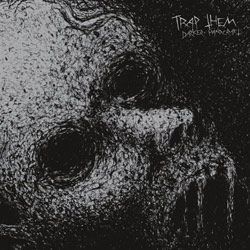
 Trap Them
Trap ThemDarker Handcraft
Prosthetic
Hailing from Seattle, Trap Them has been dealing musical kicks to the head for the last five years or so. Darker Handcraft is seemingly comprised of influences of all sorts. What’s amazing about this album is the way those influences are sewn back together into actual songs. Darker Handcraft has a manic, psychotic feel to it, with lots of droning, sick-sounding guitars, addictive riffs, and some fist-pump worthy choruses here and there to seal the deal. Barely brushing past the 30-minute mark, the record punches you in the face, but runs away slowly. The album closes with some creepy, atmospheric numbers that are sure to leave you with a sense of dread.
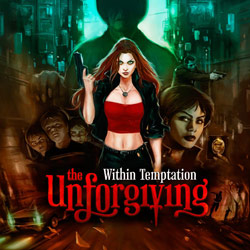
 Within Temptation
Within TemptationThe Unforgiving
Roadrunner
While the songs are definitely poppy and straightforward, there’s still plenty of symphonic strings and choral vocals on Within Temptation’s latest. And much like their other recent studio albums, The Unforgiving has a handful of obvious (potential hit) singles. Album opener “Shot in the Dark” starts out slow and brooding before hitting its stride with a classic sweeping chorus. “Faster” is an uncharacteristically simple, roaring hard-rocker with yet another huge, anthemic chorus. If there was any justice in this world, it would be a big crossover hit. “Where Is the Edge” is a soaring, mid-paced, dramatic number and might be the best vocal performance by Sharon den Adel on the entire disc. And then there’s “Sinead.” I never thought I’d characterize a Within Temptation song as danceable, but I guess there’s a first time for everything, right? But old fans, need not worry, as there are also a handful of particularly memorable gothic ballads to be found here too. On a song-for-song basis, The Unforgiving is arguably the band’s most consistent album yet.
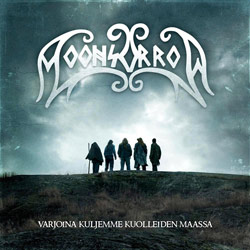
 Moonsorrow
MoonsorrowVarjoina Kuljemme Kuolleiden Maassa
Spinefarm
What a criminally underrated record! Each track is an epic unto itself, with guitars heavier than an avalanche and moving at a pace slightly faster than one, leaving your eardrums crushed in their wake. Varjoina has hooks to spare, and each song plays out like a symphony; each track has several movements and melody structures expanded upon and revisited repeatedly so that you become engrossed to the point of not noticing that some of these compositions are pushing upwards of 15 minutes in length. And the European melodies for which Moonsorrow are famous are notably present here. These traditional melodic motifs are seamlessly interwoven into the mammoth music, alternating between being airy and chiming or deep and emotive. Moonsorrow’s newest LP stands out among contemporary metal in that you can tell by listening to it how much thought and construction was put into crafting it as a flowing piece of music. It should be regarded as not just a monumental piece of modern metal, but as a work of art—one that you can headbang to nonetheless.
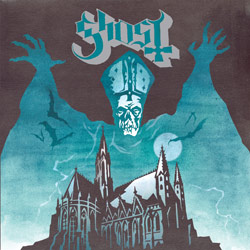
 Ghost
GhostOpus Eponymous
Rise Above/Metal Blade
Ghost is an anonymous sextet from Sweden who supposedly formed a rock band to ensnare more souls to worship Satan. The twist here is that instead of being an overly dark affair, the music harkens back to the groove of early heavy metal from the late 1960s and 70s, referencing sounds from the likes of Black Sabbath, Thin Lizzy, Mercyful Fate and Blue Oyster Cult. What sets Ghost even further apart from most of its heavy music peers is the vocals. Instead of the grunting, growling or screaming usually associated with modern metal, the lead singer belts out the blasphemous lyrics with a clear, soaring croon that will have you singing along to choruses about human sacrifices, witches, evil women and Satanic rites. Sure, Ghost is a little hokey and gimmicky, but the songs are so hooky and catchy that in the end, you will be glued to your stereo. Apparently when Satan rears his ugly head from Hell, it’s going to be a rockin’ good time.
